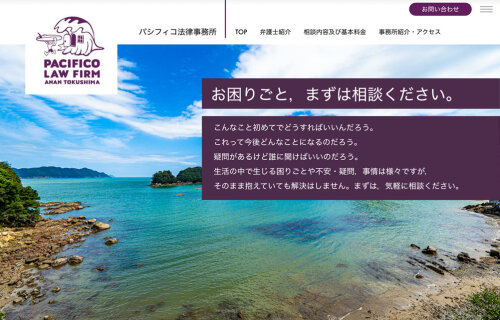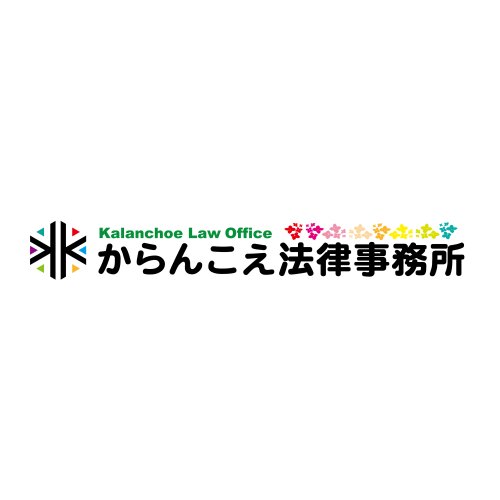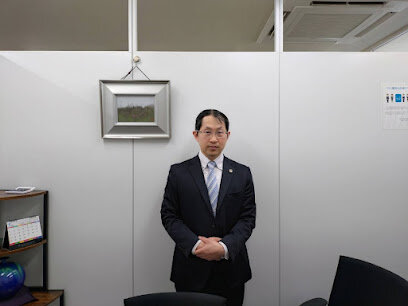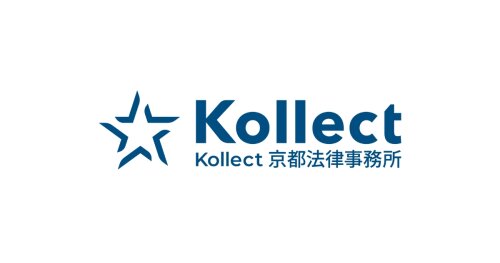Best White Collar Crime Lawyers in Japan
Share your needs with us, get contacted by law firms.
Free. Takes 2 min.
Or refine your search by selecting a city:
List of the best lawyers in Japan
About White Collar Crime Law in Japan
White collar crime in Japan encompasses a range of non-violent offenses typically committed for financial gain. These crimes often involve deceit, concealment, or the violation of trust which are perpetrated by individuals or organizations in positions of power or authority. Common examples include fraud, embezzlement, bribery, insider trading, and money laundering. Japan takes white collar crime seriously and has instituted strict laws and regulations to deter and punish these offenses, reflecting its strong emphasis on maintaining economic order and integrity.
Why You May Need a Lawyer
There are several scenarios where you may require legal assistance in the realm of white collar crime in Japan:
- Allegations or Investigations: If you are accused of a white collar crime or under investigation, legal guidance is crucial to protect your rights and interests.
- Corporate Compliance: Businesses often need legal advice to ensure compliance with complex regulations to avoid inadvertently committing offenses.
- Victim of Fraud: If you are a victim of financial deception or fraud, a lawyer can help you pursue legal action and seek restitution.
- Risk Management: Organizations may seek legal counsel to prevent potential breaches and build robust internal control systems.
Local Laws Overview
White collar crime laws in Japan cover a broad spectrum of offenses, emphasizing strict compliance and transparency. Key aspects include:
- Fraud and Embezzlement: The Penal Code of Japan outlines severe penalties for fraudulent activities and misappropriation of funds.
- Insider Trading: Strictly prohibited under the Financial Instruments and Exchange Act, insider trading carries significant penalties, including imprisonment and fines.
- Anti-Bribery Regulations: Japan has stringent laws against bribery, particularly within the private sector, as detailed in the Unfair Competition Prevention Act.
- Compliance and Reporting Obligations: Companies are obligated to maintain transparency through rigorous reporting standards to financial authorities.
Frequently Asked Questions
What constitutes a white collar crime in Japan?
White collar crimes in Japan generally include fraudulent activities, corruption, embezzlement, tax evasion, and breaches of trust, typically committed by individuals in business or professional settings.
How are white collar crimes investigated in Japan?
White collar crimes are investigated by specialized units within the National Police Agency, often involving meticulous review of financial documents and digital evidence.
Can companies be held liable for white collar crimes in Japan?
Yes, companies can be held liable for criminal actions committed by their employees if the acts are linked to the company’s business operations.
What penalties are associated with white collar crime convictions?
Penalties can include imprisonment, hefty fines, or both. The severity depends on the crime's nature, scale, and impact.
Is there a statute of limitations for white collar crimes in Japan?
Yes, the statute of limitations varies depending on the crime, typically ranging from five to ten years from the commission of the crime.
How can legal counsel help in white collar crime cases?
Legal counsel can offer strategic defense, negotiate settlements, ensure compliance with regulations, and help mitigate potential penalties.
Are whistleblower protections available in Japan?
Yes, the Whistleblower Protection Act safeguards individuals who report illicit activities from retaliatory actions by their employers.
How do Japanese courts deal with white collar crime cases?
Courts typically assess evidence meticulously, and cases are prosecuted by the public prosecutor's office, emphasizing both deterrence and punishment.
What should I do if I suspect white collar crime in my company?
It is advisable to consult legal counsel to understand your reporting obligations and ensure proper handling of the suspected offense.
Can foreign nationals be prosecuted for white collar crimes in Japan?
Yes, foreign nationals committing white collar crimes within Japan's jurisdiction are subject to Japanese laws and prosecution.
Additional Resources
For further assistance, consider consulting the following:
- Japan Federation of Bar Associations: Offers access to qualified attorneys specializing in criminal law.
- National Consumer Affairs Center of Japan: Provides resources for victims of fraud and financial deceit.
- Ministry of Justice: Offers information on compliance and legal regulations.
Next Steps
If you require legal assistance with a white collar crime issue in Japan, prioritize the following steps:
- Consult a Lawyer: Seek a lawyer with expertise in white collar crime who can provide tailored advice and representation.
- Gather Documentation: Collect any relevant documents, such as financial records or correspondence, that may be pertinent to your situation.
- Understand Your Rights: Familiarize yourself with your legal rights to ensure informed decision-making throughout the legal process.
- Cooperate with Authorities: If under investigation, cooperate with authorities while ensuring your lawyer is present during any questioning.
- Consider Preventative Measures: For businesses, implement robust compliance programs to mitigate the risk of future incidents.
Lawzana helps you find the best lawyers and law firms in Japan through a curated and pre-screened list of qualified legal professionals. Our platform offers rankings and detailed profiles of attorneys and law firms, allowing you to compare based on practice areas, including White Collar Crime, experience, and client feedback.
Each profile includes a description of the firm's areas of practice, client reviews, team members and partners, year of establishment, spoken languages, office locations, contact information, social media presence, and any published articles or resources. Most firms on our platform speak English and are experienced in both local and international legal matters.
Get a quote from top-rated law firms in Japan — quickly, securely, and without unnecessary hassle.
Disclaimer:
The information provided on this page is for general informational purposes only and does not constitute legal advice. While we strive to ensure the accuracy and relevance of the content, legal information may change over time, and interpretations of the law can vary. You should always consult with a qualified legal professional for advice specific to your situation.
We disclaim all liability for actions taken or not taken based on the content of this page. If you believe any information is incorrect or outdated, please contact us, and we will review and update it where appropriate.
Browse white collar crime law firms by city in Japan
Refine your search by selecting a city.
















